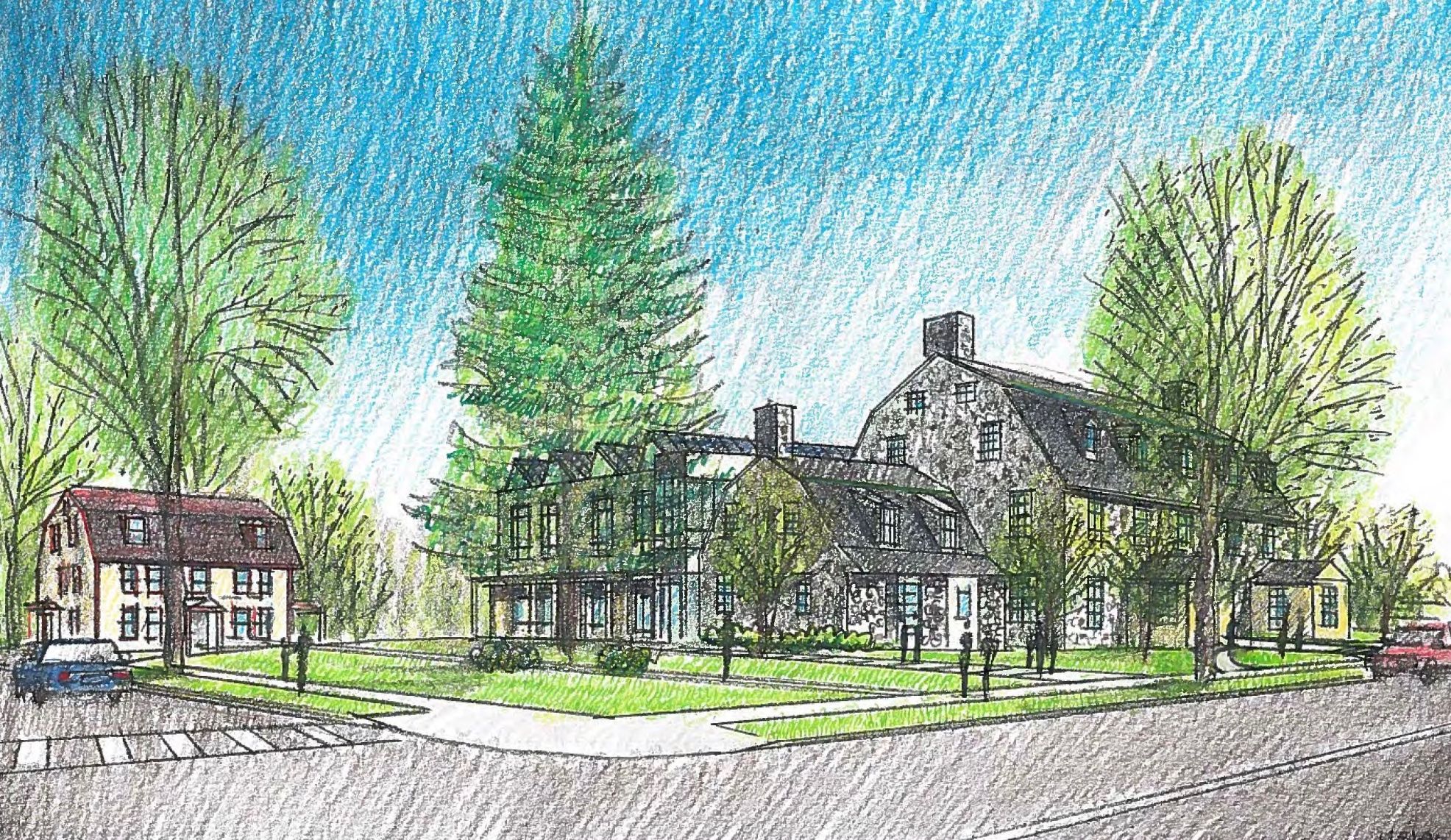Jones Library Moves Ahead With Major Expansion

At a trustee meeting on March 15, the board members of the town of Amherst’s Jones Library unanimously reaffirmed their support for the library’s expansion and renovation project, which is currently estimated to cost around $43 million, up from a $36.3 million estimate in 2021.
Austin Sarat — president of the library’s Board of Trustees and a professor of political science and law, jurisprudence, and social thought at the college — proposed the re-endorsement of the project. The proposal was approved by a vote of 6-0, despite recent increases in the project’s estimated cost.
The expansion would allow for ample space for existing programming and historical collections; additionally, Sarat expressed the board’s hope to make the library more accessible to a more diverse population of patrons. During construction, projected to last over a year, the library will be moved to a temporary location.
In an interview with The Student, Sarat said the idea for the expansion began when he first joined the board in 2011, as it was clear that there was a need for revamping of some of the library’s more outdated systems. The board consulted the Massachusetts Board of Library Commissioners and concluded that their vision for the new and improved library could not be achieved within the existing space.
“It was apparent that the function of a modern library was changing,” he said. “The Jones [Library] needed both more space and a reimagining of its space in order to serve its users.”
An initial draw-up of a 100,000 square feet renovation by the board was reworked in consultation with an architect, who was able to fit the proposed changes into a 66,000-to-68,000-square-foot space. The library is currently about 50,000 square feet.
Funding for the expansion includes a $13.8 million grant from the Massachusetts Board of Library Commissioners, $15.8 million pledged by the town of Amherst, $2.25 million from private donors and $4.65 million secured via the Jones Library Capital Campaign. Additionally, a recent $1.7 trillion federal omnibus spending bill guaranteed another $1.1 million for the expansion.
Part of the expansion includes creating more space for their special collections; among these collections include a variety of original manuscripts and correspondence from local literary legends Emily Dickinson and Robert Frost.
“Special collections are where the collective memory of the town lies,” Sarat said. “If you care about democracy, you have to care about history.”
According to Sarat, a primary goal of the expansion from the beginning has been to increase its accessibility to the community. Libraries, he said, are places of congregation for people of diverse backgrounds, and thus “the most democratic institutions in any community,” along with public schools.
“The library right now is not accessible,” he said. “For me, the commitment to support the library’s renovation, which will better serve the diverse communities that use it, is part of supporting an infrastructure for democracy.”
The vision for greater accessibility includes improved resources for programs like the English Second Language (ESL) & Citizenship Program, which provides tutoring for English and citizenship courses for adult immigrants in the Amherst area; Sarat said the program would have a designated space in the new layout. Improved spaces for teens and kids are also in the works, and Sarat said that environmental sustainability has taken higher priority concerning the renovation in recent years.
With cost estimates going up due to the Covid-19 recession, subsequent inflation, and increased concern for sustainable building, Sarat said the board is hoping to get more federal funding. The need for the expansion has not changed despite increased costs, he said, noting that his recent proposal for the board’s re-endorsement of the expansion was especially important in light of the new cost estimates.
“We wanted everybody to know that the original vision was still the right vision, even though it’s now years later,” he said.
Sarat hopes that Amherst’s student population, though they are “guests” in town, will find the renovated Jones Library as a resource and integral part of the college’s welfare.
“The well-being of the college depends upon the well being of the town, and the well-being of the town depends upon its civic infrastructure,” he said. “And healthy civic infrastructure supports the well-being of a town.”
Julius Tyson ’25, who has volunteered at the Jones Library in the past, is optimistic about the upgrades.
“I think renovation is necessary,” he said, referencing an event space and kids’ area he described as “run-down.”
According to him, the renovations should be largely focused on kids’ and teens’ spaces. “They’re the majority clientele,” he said.
In harmony with Sarat’s view that a well-kept library, town, and college are all mutually beneficial, Tyson remarked that his work at the library helps him feel more connected with the town.
“I appreciate that because of how insular the college can feel,” he said. “Maybe the renovations will bring more students [to the library].”